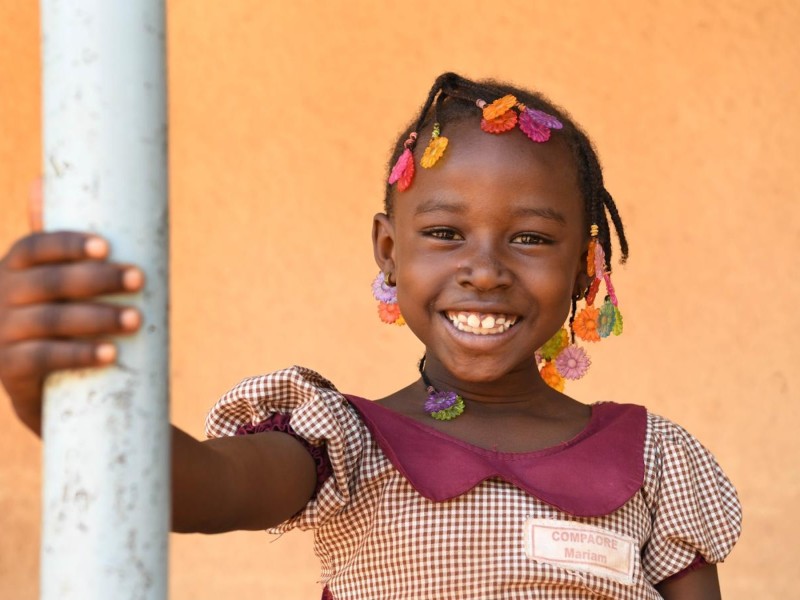GCE Statement on the Day of the African Child 2024

Education for all children in Africa: The time is now!
On the Day of the African Child, the Global Campaign for Education (GCE) reaffirms its support for the full realization of children's human rights, particularly their right to education from birth. The GCE congratulates the African Union (AU) and the African Committee of Experts on the Rights and Welfare of the Child (ACERWC) for dedicating the 2024 Day of the African Child to education. This decision reinforces the scope of the African Charter on the Rights and Welfare of the Child (ACRWC), as well as its connection with the Convention of the Rights of the Child and the Sustainable Development Agenda, especially SDG4.
The population of African children is estimated to reach 1 billion by 2055, making this continent the one with the largest number of children. This significant figure has profound implications, prompting AU member states to assess its progress in delivering on fundamental commitments agreed upon in 2014. These commitments include establishing legislative frameworks to ensure free and compulsory primary education, promoting early childhood and secondary education, adopting inclusive education frameworks, collecting data on out-of-school children, identifying reasons for exclusion, and specifying measures to ensure all children attend school, including the most marginalized ones. To achieve these goals, the African community is focused on developing quality education indicators, assessments, and specific measures for vulnerable children, such as those in economically disadvantaged or conflict situations, and children of incarcerated caregivers.
The GCE and its distinguished member, the Africa Network Campaign on Education for All (ANCEFA), support the progressive implementation of these commitments. Aware of the associated challenges, we also call on the international community to join the national and regional efforts in place, aimed at addressing the needs and rights of the child population in the continent.
The challenges facing African children are enormous, including physical and economic barriers to education, poor educational quality, and inadequate funding. Girls, children with disabilities, those in conflict situations, impoverished children, refugees and those living in remote areas face greater difficulties in accessing education. Consequently, they require special assistance and additional resources to ensure their right to education. Special attention should be given to girls who never attended schools or who abandoned it at early stages. Gender-based violence in the schools or on the way to school is amongst the main obstacles that must be overcome.
The GCE emphasizes that education should be guaranteed within the human rights framework. Its enabling nature forms the basis for personal and community development, social, economic, environmental justice and the promotion of a life in dignity.
The lack of free, quality public education has led to the proliferation of low-quality private educational options. These options burden family budgets without ensuring adequate choices for children. Pre-primary education, in particular, has become a sector in which privatization exploits business opportunities at the expense of families. African states must promptly address this serious situation by progressively providing free public, quality and inclusive education for the entire population, including rural and other marginalized communities.
Access to appropriate digital technology is crucial for achieving the Sustainable Development Goal 4, especially for children who have faced exclusion and discrimination. Existing gender gaps in digital inclusion disproportionately affect girls, deepening educational inequalities and reinforcing social subordination. Addressing this digital divide among rural girls is essential to prevent increased labor, economic, and social inequalities in their adult lives.
At the same time, it is of increasing importance to address the children's rights in the digital environment, including the monitoring or data collection that violates their right to privacy, as well as the risks to children’s health and the various forms of cyber-violence, including gender violence. A digital literacy process with a critical approach is also vital, equipping educational communities to deal with the digitalization of societies.
Adequate and predictable financing is essential to prevent debt from undermining education, so GCE encourages African governments to meet their education financing commitments by aiming to allocate 4-6% of GDP towards education. Implementing tax justice frameworks is crucial to eradicate regressive practices. GCE commends the leadership of the AU in pushing for the UN Tax Convention that can help countries sustainably increase financing for education and other public services.
The GCE commends the important work of the African Committee of Experts on the Rights and Welfare of the Child. Their comments and recommendations on the situation of children in armed conflict states are vital. We recognize that situations of warfare and conflict not only directly affect children and their families but also pose a serious threat to education systems. It endangers the lives of teachers, students, and families, and destroys school infrastructure.
The GCE urges African states to subscribe to the Safe Schools Declaration—an intergovernmental political commitment aimed at preventing and responding to attacks on education during armed conflict. Measures must be taken to ensure the right to education even in conflict and emergency situations.
Strategically, African states should prioritize the implementation of quality climate change education and establish frameworks for disaster prevention and response in education systems.
The GCE pays tribute to the memory of the victims of the 1976 student uprising in Soweto, South Africa that inspired the commemoration of the Day of the African Child. May their struggle continue to inspire us toward a fairer and better world for all.


